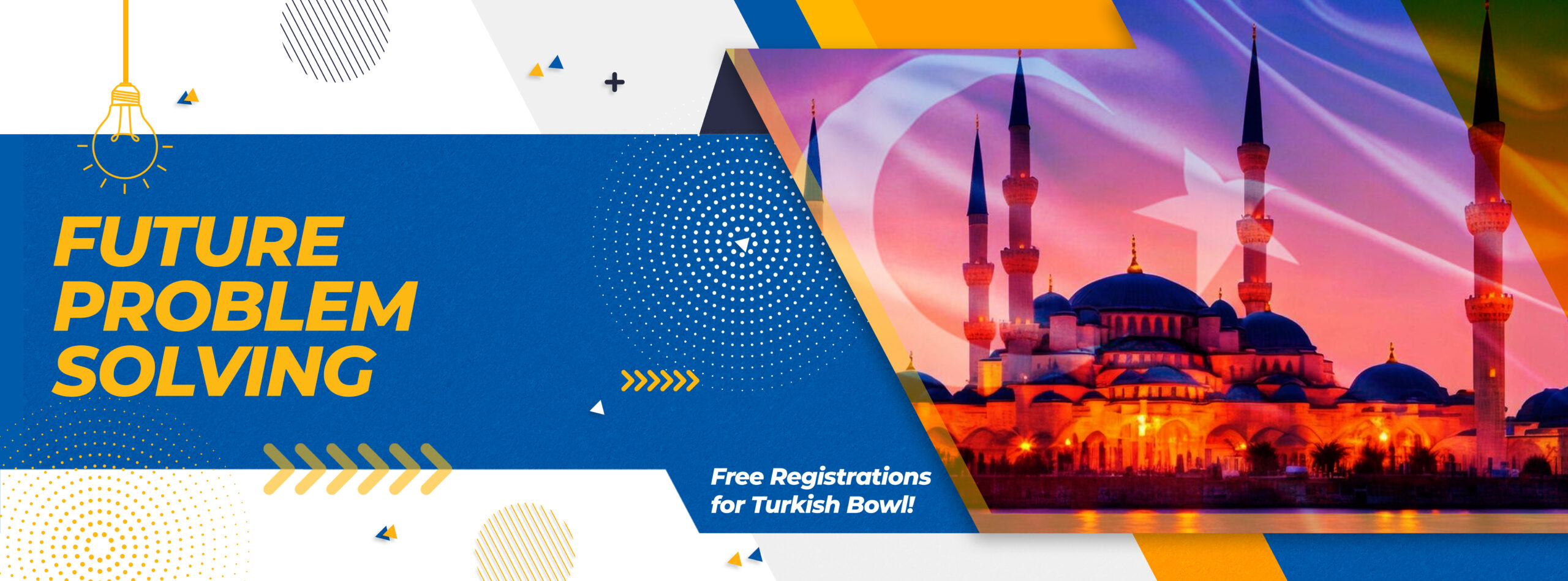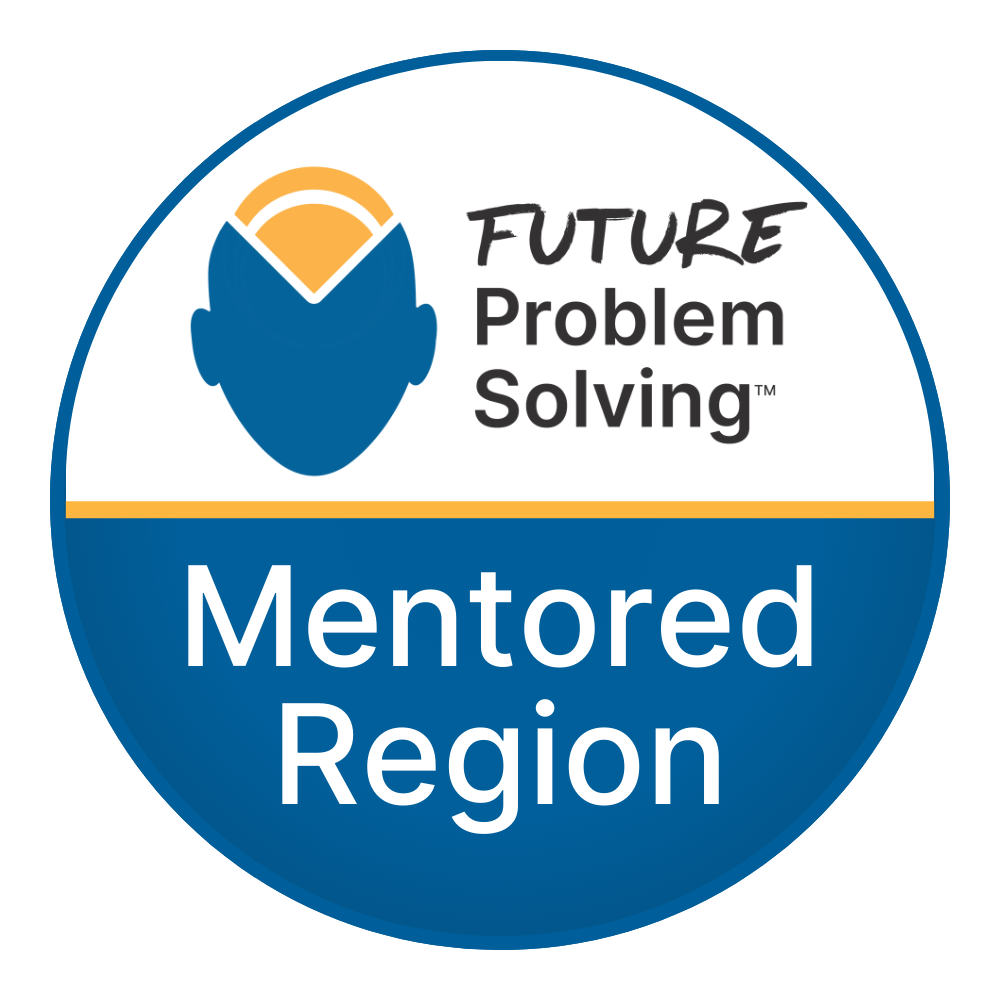

Future Problem Solving is an international program that engages thousands of students annually, promoting critical and creative thinking, problem-solving, and decision-making skills. It was created in 1974 by Dr. E. Paul Torrance, a renowned creativity pioneer. The program offers competitive and non-competitive components based on a six-step model, aligning with various teaching standards such as ESSA, Australian Curriculum, New Zealand Curriculum, P21, PISA, IB, and NAGC Programming Standards.
The International Baccalaureate (IB) program incorporates different approaches to learning (ATL), including thinking skills (creative, critical, and transfer), social skills (collaboration), communication skills, self-management skills, and research skills. These ATLs foster self-regulation and intrinsic motivation, preparing students for independent and collaborative work in the workforce. Future Problem Solving reinforces these skills.
Over the past decade, more than 250,000 students from 37 states and 14 countries have participated in Future Problem Solving, highlighting its widespread reach and impact.
Future Problem Solving is chosen for its ability to address the need for problem-solving skills in the curriculum, preparing students for the future. It enhances global awareness, covers various subjects like business, science, and society, and fosters research and foresight. Integrating with language arts and social studies, it develops 21st-century skills, stimulates critical and creative thinking, encourages vision-building, offers competitions, promotes communication and teamwork, and connects students with the real world.
Programs offered for Pakistani students:
Future Problem Solving offers two competitive components in Pakistan:
1: Global Issues Problem Solving
2: Scenario Writing
Global Issues Problem Solving (GIPS) Global Issues Problem Solving (GIPS) teaches students how to think creatively about the future as students research and analyse the annual topics. It can be used as a curriculum, integrated into content areas, or offered as an extra-curricular option. Participants research a series of global topics and apply Future Problem Solving’s six-step problem-solving process to resolve the Future Scene — a hypothetical scenario set 20-30 years in the future. Culminating in a detailed Action Plan, entries are authentically assessed and scored by trained evaluators.
The Scenario Writing (SW): The Scenario Writing (SW) component strives to help students enlarge, enrich, and make more accurate their image of the future while honing creative writing skills. It can be used as a stand-alone activity by an Future Problem Solving coach, an English teacher, a parent, or any instructor with students who are interested in creative writing. Students develop short stories related to one of five annual Future Problem Solving topics. Entries are 1500 words or less, set at least 20 years in the future, and are an imagined, but logical, outcome of actions or events taking place in the world. Student work is assessed based on the character, plot, and feasibility of possible outcomes which directly reflect hydra trends in the researched topic.
HOW Future Problem Solving WORKS
The first step is to determine which component you are interested in – Global Issues or Scenario Writing. Your Future Problem Solving coach will register you and receive materials. Coaches can be a parent, experienced Future Proble
m Solving/mentor, or a teacher. Materials are provided to enhance learning of the process and provide support and feedback. Virtual support is available through videos and instructional e-learning experiences. Everyone starts with practice topics and preliminary project deadlines to support learning through feedback/assessment. After the practice topics, competitive topics are offered for regional/state or national finals which can qualify you for the International Conference. At the International Conference, you will get a chance to compete and collaborate with over 2,000 other problem solvers from all over the globe!

Future Problem Solving is an international program that engages thousands of students annually, promoting critical and creative thinking, problem-solving, and decision-making skills. It was created in 1974 by Dr. E. Paul Torrance, a renowned creativity pioneer. The program offers competitive and non-competitive components based on a six-step model, aligning with various teaching standards such as ESSA, Australian Curriculum, New Zealand Curriculum, P21, PISA, IB, and NAGC Programming Standards.
The International Baccalaureate (IB) program incorporates different approaches to learning (ATL), including thinking skills (creative, critical, and transfer), social skills (collaboration), communication skills, self-management skills, and research skills. These ATLs foster self-regulation and intrinsic motivation, preparing students for independent and collaborative work in the workforce. Future Problem Solving reinforces these skills.
Over the past decade, more than 250,000 students from 37 states and 14 countries have participated in Future Problem Solving, highlighting its widespread reach and impact.
Future Problem Solving is chosen for its ability to address the need for problem-solving skills in the curriculum, preparing students for the future. It enhances global awareness, covers various subjects like business, science, and society, and fosters research and foresight. Integrating with language arts and social studies, it develops 21st-century skills, stimulates critical and creative thinking, encourages vision-building, offers competitions, promotes communication and teamwork, and connects students with the real world.
Programs offered for Pakistani students:
Future Problem Solving offers two competitive components in Pakistan:
1: Global Issues Problem Solving
2: Creative Writing
Global Issues Problem Solving (GIPS)
Global Issues Problem Solving (GIPS) teaches students how to think creatively about the future as students research and analyse the annual topics. It can be used as a curriculum, integrated into content areas, or offered as an extra-curricular option. Participants research a series of global topics and apply Future Problem Solving’s six-step problem-solving process to resolve the Future Scene — a hypothetical scenario set 20-30 years in the future. Culminating in a detailed Action Plan, entries are authentically assessed and scored by trained evaluators.
The Creative Writing (CW):
The Creative Writing (CW) component strives to help students enlarge, enrich, and make more accurate their image of the future while honing creative writing skills. It can be used as a stand-alone activity by an Future Problem Solving coach, an English teacher, a parent, or any instructor with students who are interested in creative writing. Students develop short stories related to one of five annual Future Problem Solving topics. Entries are 1500 words or less, set at least 20 years in the future, and are an imagined, but logical, outcome of actions or events taking place in the world. Student work is assessed based on the character, plot, and feasibility of possible outcomes which directly reflect hydra trends in the researched topic.
HOW Future Problem Solving WORKS
The first step is to determine which component you are interested in – Global Issues or Creative Writing. Your Future Problem Solving coach will register you and receive materials. Coaches can be a parent, experienced Future Problem Solving/mentor, or a teacher. Materials are provided to enhance learning of the process and provide support and feedback. Virtual support is available through videos and instructional e-learning experiences. Everyone starts with practice topics and preliminary project deadlines to support learning through feedback/assessment. After the practice topics, competitive topics are offered for regional/state or national finals which can qualify you for the International Conference. At the International Conference, you will get a chance to compete and collaborate with over 2,000 other problem solvers from all over the globe!
Problem Solving Topics
Practice Problem 1
The Topic for Practice Problem 1
Practice Problem 2
The Topic for Practice Problem 2
Qualifying Problem
The Topic for Qualifying Problem
Final Problem
The Topic for Final Problem
These topics are for GIPS and Creative Writing
- GIPS (Address all the four topic for 2024 – 2025)
- Creative Writing (Choose and address one topic for 2024-25)
Age Criteria:
Eligible grades for Future Problem Solving:
- Junior (grades 4-6)
- Middle (grades 7-9)
- Senior (grades 10-12)
GIPS:
Our Global Issues program uses imagined “what if” future scenarios to describe real-world problem situations needing to be solved. Students complete the problem-solving process for each of the annual topics. The first two topics are practice problems, allowing the students to use references and receive support from their coach as they develop their understanding of the process. The second two topics are timed, competitive submissions that can qualify students to advance to the next round of competition, ending with the International Conference. All submitted work receives feedback to support students as they learn.
Creative Writing:
Our Creative Writing program (previously known as Scenario Writing) provides an opportunity to create an original story based on one of the topics for the current competition season. Students draw inspiration from their research on one of the annual topics, and develop an original 1500-word short story about a possible situation set 20-30 years in the future.
The mentor/coach required for both categories GIPS and Creative Writing.
- Mentor/Coach Registration Cost: $45 (Mentor/Coach Fee $40 and $5 are international transaction charges)
Global Issues Problem Solving (GIPS) Competition Cost:
- Team Registration (upto 4 participants): $160 (Contest Fee $155 and $5 are international transaction charges)
- Individual Registration: $135 (Contest Fee $130 and $5 are international transaction charges)
The Creative Writing (CW) Competition Cost:
- Premium Registration Cost (with feedback): $90
- (Contest Fee $85 and $5 are international transaction charges)
- Regular Registration Cost (without feedback): $70
- (Contest Fee $65 and $5 are international transaction charges)
- In order to confirm your registration, please fill out the form by clicking on (Register Now) in the tab below.
- You will receive a confirmation email within 24 hours.
- Payment is nonrefundable if you are unable to participate in the competition after registration.
GLOBAL ISSUES PROBLEM SOLVING (GIPS):
| Submission | Registration Deadline | Due Dates | Notes |
| Practice Problem #1 (PP1) Food Security | October 10, 2024 | October 17, 2024 | Optional, but highly recommended. Encourage students to try at least the first three steps and submit for feedback even if incomplete. |
| Practice Problem #2 (PP2) Rising Sea Levels | December 5, 2024 | December 12, 2024 | Optional, but highly recommended. Students should attempt all six steps and submit for feedback even if incomplete. |
| Qualifying Problem (QP) Agricultural Industry | January 30, 2025 | February 6, 2025 | Applicable invitations to the Affiliate Problem will accompany assessment. |
| Affiliate Problem (AP) Nanotechnology | N/A | March 13, 2025 | Applicable invitations to the International Conference will accompany assessment |
The Creative Writing (CW)
- Premium Registration Deadline: November 14, 2024
- Standard Registration: January 30, 2025
| Submission | Due Date | Notes |
Draft Creative Writing Creative as Word File | November 21, 2024 | Students will receive feedback for improvement to prepare their competitive submission. *This is only for students who have a premium registration |
Final Submission Creative as Word File | March 6, 2025 | Students submit final writing for evaluation. Word count must not exceed 1,500. Coaches must include your student’s signed Publication Release. Applicable invitations to the International Conference will accompany assessment. |
Results: Participants will be sent a detailed report of their result via email.
Winners will attend an international awards ceremony.
Future Problem Solving: Turkish Bowl
Age Criteria:
Eligible grades for FPS: Turkish Bowl
- Grades 4 - 12
FREE REGISTRATION for Pakistani students.
Students who qualify the GIPS or Creative Writing rounds can now attend TURKISH BOWL for FREE!
Important Note:
(Students will pay only for their accommodation and air tickets).
Registration Fee: FREE (students pay only for their accommodation and air travel).
Contest Dates: 11th – 13th April, 2025
Registration Deadline: 13th December, 2024
Note:
You can only participate if you have enrolled yourself in GIPS or Creative Writing.
Future Problem Solving TURKISH BOWL: A Platform for Global Excellence
FREE REGISTRATION for Pakistani students.
Students who qualify the GIPS and Creative Writing rounds can now attend TURKISH BOWL for FREE!
Dates: 11th – 13th April, 2025
Registration Dates: 13th December, 2024
Location: Turkey
Eligibility: Grades 4 – 12
Registration Fee: FREE (students pay only for their accommodation and air travel)
FPS Gen AI World Solutions Challenge
FPS flexible World Solutions Challenge gives students a 2-week window to analyze a specific current real world issue and use FPS 6-step problem-solving process to develop an action plan. All activities are asynchronous and available via our interactive, collaborative FPSOnline platform so these flexible challenges may be completed at any point during the challenge time frame. Students may meet when and where they like, even virtually, as long as they can access the internet via at least one computer. Some teams complete everything “at once” in a single (long) session, while other teams prefer to meet for two or more sessions during the window to tackle the problem a little at a time.
Register your team to compete in the 2024 virtual problem-solving competition. The 2-week challenge window is November 4 to 19 and the topic is Generative AI (GenAI). Students may complete and submit their action plan at any point during the time frame. This challenge is an introductory experience to our signature Global Issues program and no previous Future Problem Solving experience or affiliate is needed.
Spaces are limited! Registration will close on October 28 at 9:00 PM (PKT) or earlier if the event reaches capacity sooner. Reserve your spot today.
Participation Criteria:
Eligible grades for FPS: Gen AI
Grades 5 to 9 (ages 10-15)
Team of 2-4:
Students may work on challenges in teams of 2-4 students. All compete together in one open division, no matter the number of students working on a submission.
FPS Online Resources:
Students use FPSOnline to access all challenge activities, complete the 6-step problem-solving process, and submit their step six action plan for competition events.
2024 Challenge Topic:
The competition is based on a core problem related to a real world issue. In 2024, students will be challenged to explore how the emerging use of Generative Artificial Intelligence (GenAI) will impact how we work, live, play, and learn.
Registration Fee: $100 per team registration
Registration deadline:
October 28 at 9:00 PM (PKT)
2024 Competition Timeline
- Open Registrations Open: October 15 – 28, 9:00 PM (PKT)
- FPS Online Login Credentials Distributed: October 31
- Competition Window: November 4 – 19
- Action Plan Judging: November 22 – December 4
- Winners Announced: December 13
FPS - GEN AI Results: Click Here
2024 Competition Prizes
- The top 3 winning teams each receive 1 free team entry to compete in our Global Issues competition during the 2025 season with the Future Problem Solving affiliate supporting their location.
- All students on the first and second place teams (and 1 chaperone per team) each receive free registration to attend our 2025 International Conference in June. Held at Indiana University, students will collaborate with problem solvers from around the world in MAGIC, our Multi-Affiliate Global Issues Competition. (Estimated value: $4,000 per team)
- An additional stipend of $1,000 for travel support is also available for the first place team.


